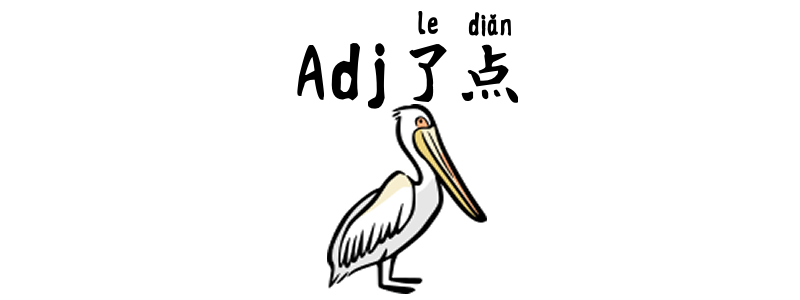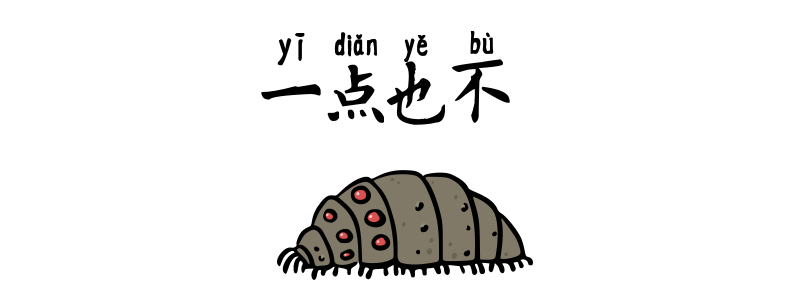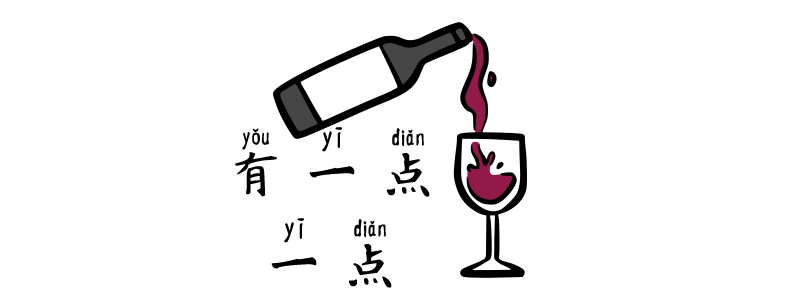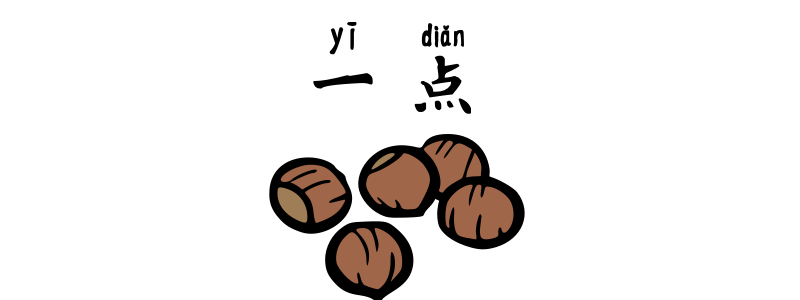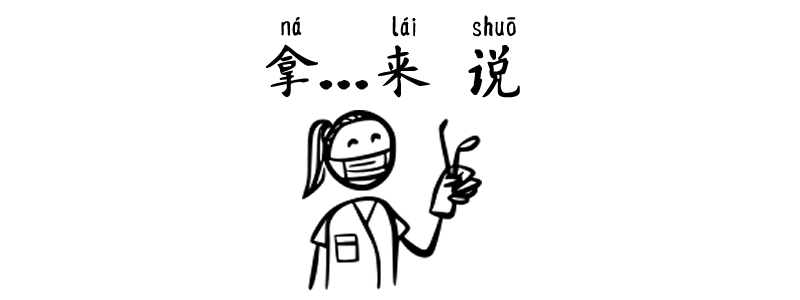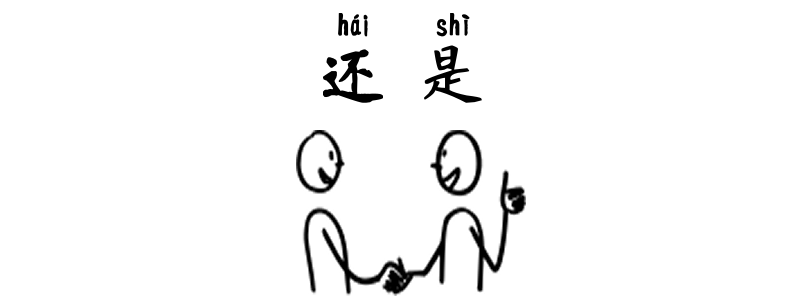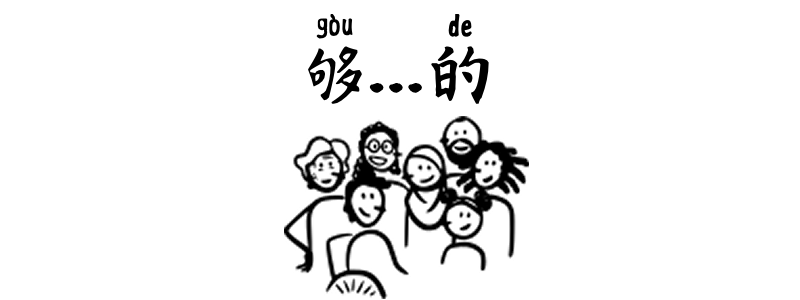Grammar Point:The structure Adj + 了點点 le diǎn is used in Chinese to express that something is “a bit too” or “slightly excessive” in terms of a particular quality or condition. It often conveys mild dissatisfaction, criticism, or concern. Structure Adj + 了點点(儿) le diǎndiǎn(r) It implies that the adjective describes something slightly beyond what is ideal…
Author: tiffany
“Not at all” in Chinese – yìdiǎn yě bù
Grammar Point:一點点也不 yìdiǎn yě bù is used in Chinese to emphasize complete negation or “not at all”. It expresses that there is not even a little bit of something or no degree of a particular quality, attitude, or behavior. Structure 一點点 yìdiǎn + 也 yě or 都 dōu + 不 bù + Adj Using 一點点 yìdiǎn with 也 yě or 都…
A little bit – 有一点 yǒu yìdiǎn & 一点 yìdiǎn
Grammar Point:Both 有一點点 yǒuyīdiǎn and 一點点 yìdiǎn convey the notion of ‘a little’ or ‘a bit,’ but with slight nuances. In China, 有點兒点儿 yǒudiǎnr is more commonly used instead of 有一點点 yǒuyìdiǎn. Structure 有一點点 yǒuyìdiǎn + Adjective 一點点 yìdiǎn + Noun 今天jīntiān天氣tiānqì有一點yǒuyìdiǎn熱rè今天jīntiān天气tiānqì有一点yǒuyìdiǎn热rèToday’s weather is a bit hot. 我wǒ弟弟dìdi有一點yǒuyìdiǎn矮ǎi我wǒ弟弟dìdi有一点yǒuyìdiǎn矮ǎiMy younger brother is a bit short. 我wǒ覺得juéde那nà家jiā店diàn的de珍珠奶茶zhēnzhūnǎichá有一點yǒuyìdiǎn貴guì我wǒ觉得juéde那nà家jiā店diàn的de珍珠奶茶zhēnzhūnǎichá有一点yǒuyìdiǎn贵guìI…
Imperatives “to do more” – 一点 yìdiǎn
Grammar Point:In Chinese, 一點点 yìdiǎn is often used in imperatives to soften the tone of a command, making it sound more polite, less direct, or more reasonable. Structure V + Adj + 一點点 yìdiǎn Usually, when a verb is followed by an adjective in Chinese, “得 de” is used to indicate the degree of the action. However,…
“Not At All” in Chinese – 一點也不
Grammar Point:一點点也不 yìdiǎn yě bù is used in Chinese to emphasize complete negation or “not at all”. It expresses that there is not even a little bit of something or no degree of a particular quality, attitude, or behavior. Structure 一點点 yìdiǎn + 也 yě or 都 dōu + 不 bù + Adj Using 一點点 yìdiǎn with 也 yě or 都…
Chinese Imperatives with 一點 yìdiǎn
Grammar Point:In Chinese, 一點点 yìdiǎn is often used in imperatives to soften the tone of a command, making it sound more polite, less direct, or more reasonable. Structure V + Adj + 一點点 yìdiǎn Usually, when a verb is followed by an adjective in Chinese, “得 de” is used to indicate the degree of the action. However,…
Giving An Example – 拿 ná… 来说 láishuō
Grammar Point:The Chinese structure 拿 ná… 來說来说 láishuō is commonly used to give an example in conversation or writing. It can be translated as “take…for example” or “speaking of…”. Structure 拿 ná + example + 來說来说 láishuō 拿ná日本rìběn來說láishuō, 他們tāmen的de公共gōnggòng交通jiāotōng非常fēicháng準時zhǔnshí拿ná日本rìběn来说láishuō, 他们tāmen的de公共gōnggòng交通jiāotōng非常fēicháng准时zhǔnshíTake Japan, for example; their public transportation is extremely punctual. 拿ná中國Zhōngguó菜cài來說láishuō, 每個měige地區dìqū都dōu有yǒu自己zìjǐ的de特色tèsè口味kǒuwèi拿ná中国Zhōngguó菜cài来说láishuō, 每个měige地区dìqū都dōu有yǒu自己zìjǐ的de特色tèsè口味kǒuwèiTake Chinese food, for example; every…
Had Better To – 還是 háishì… 吧 ba
Grammar Point:One of the ways to express ‘had better’ in Chinese is 還是还是 háishì…吧 ba. 還是还是háishì as an adverb can express ‘still’, ‘yet’, and ‘or’, it can also express a preference for an alternative. 吧 ba is often placed in the end, as it’s a suggestion. Structure S + 還还是 + Suggestion + 吧 你nǐ還是háishì換huàn個ge男朋友nánpéngyǒu吧ba! 你nǐ还是háishì换huàn个ge男朋友nánpéngyou吧ba! You’d better…
“Enough” in Chinese – 夠 / 够 gòu
Grammar Point:The Chinese word 夠够 gòu is used to indicate “sufficiency”, “enough” or “adequacy”, and it can have different meanings and functions depending on the context. Structure (S) + O + 夠够 gòu + Verb(S) + 夠够 gòu + Verb + O 夠够 gòu can be used in both positive and negative constructions to express enough or not enough. It can also be used to…
“Sufficiently” in Chinese – 够 gòu… 的 de
Grammar Point:This structure 夠够 gòu …的 de is used to express that something is “enough to reach a certain extent” or “sufficiently.” It emphasizes the degree or extent of a quality, often to highlight how remarkable or notable something is. Structure 夠够 gòu + (S) + Adj + 的 de This pattern conveys a casual,…
